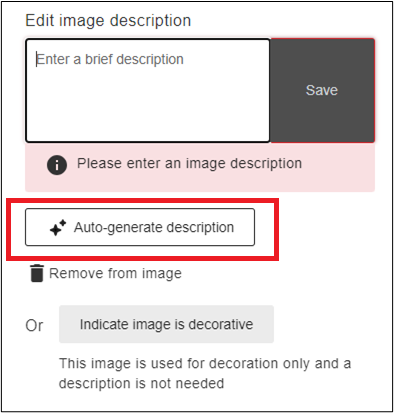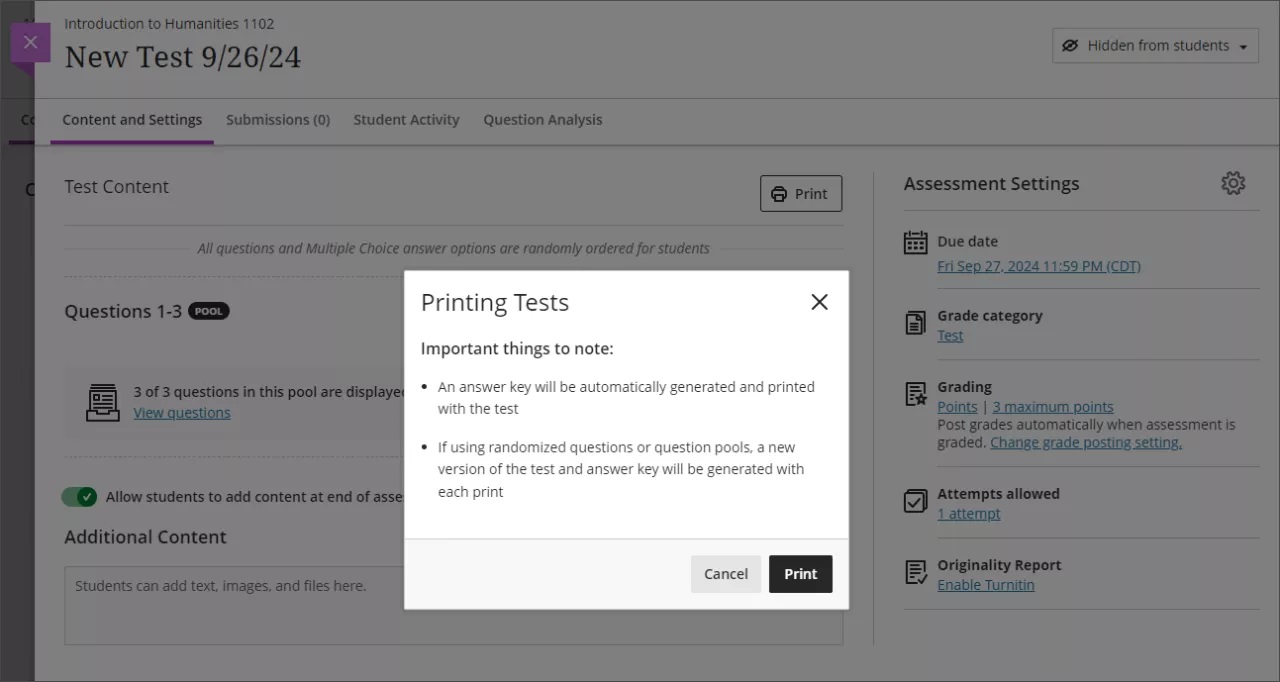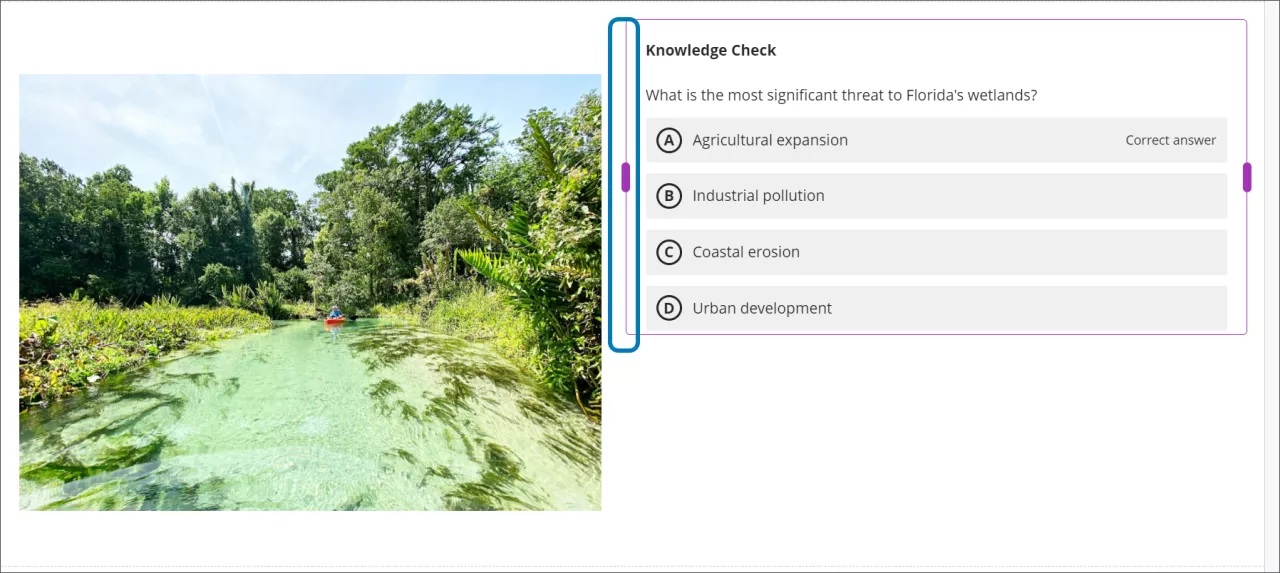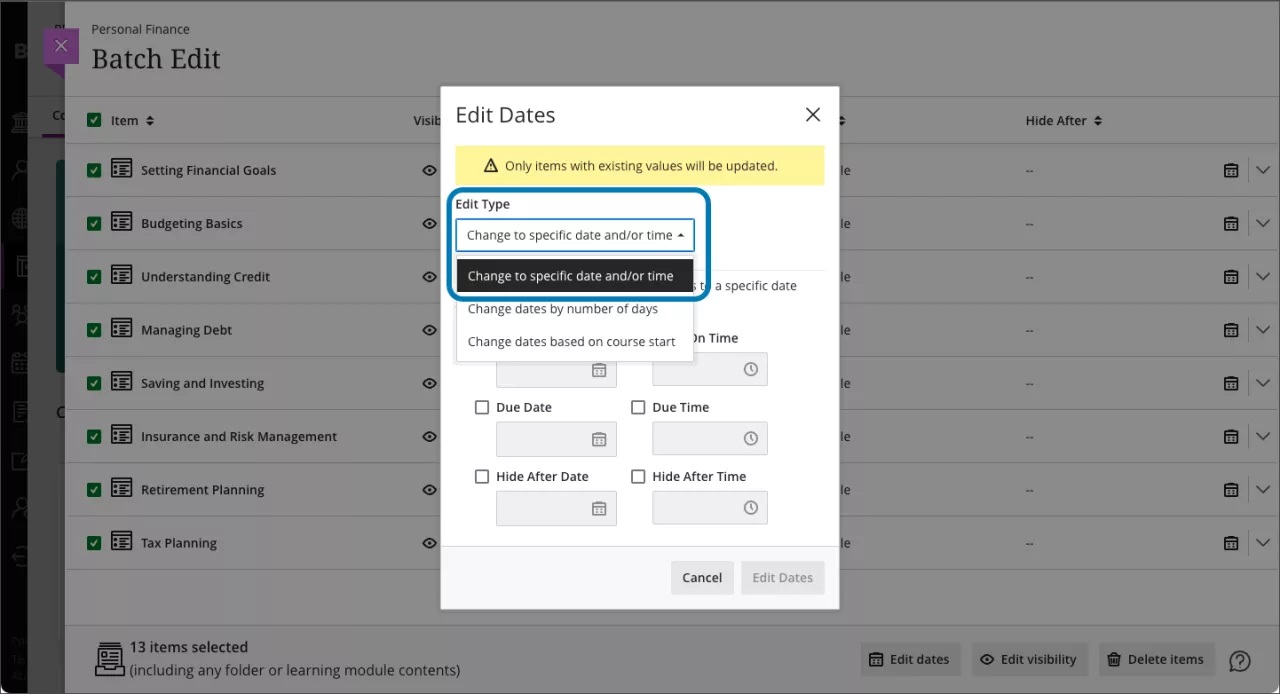
Turnitin will be unavailable between 16:00 and 20:00 on Saturday 18 January 2025 for scheduled maintenance.
During this time, you will be unable to submit or grade any assessments. We apologise for any inconvenience caused.

Turnitin will be unavailable between 16:00 and 20:00 on Saturday 18 January 2025 for scheduled maintenance.
During this time, you will be unable to submit or grade any assessments. We apologise for any inconvenience caused.
This December Blackboard has made it easier to see new posts in Discussions and late submissions in Blackboard Assignments (not Turnitin). Additionally, we highlight the release of AI Conversations in Blackboard and the Online Mini Conference on 18 December.
Related Blackboard Topic: Discussions
Blackboard have added a “New” indicator that displays next to posts and replies that a user has not yet accessed. This helps direct engagement by making new discussion activity easier to find and access.
Image 1. The “New” indicator alongside a post and a reply

Please also see the section on the Ability to ‘Follow’ Discussions for Enhanced Engagement from the August 2024 Update
Related Blackboard Topic: Grade Assignments with Flexible Grading
To help instructors quickly identify late submissions in the attempt banner, late submissions now have a Late indicator. Blackboard also updated the wording from Submitted late <date> to Submitted <date>.

The latest AI Design Assistant feature has been enabled in Blackboard.
AI Conversations provides a chat bot for students to interact with as part of a learning activity.
There are two AI Conversation options:
Once set up, students can engage in these activities to further their knowledge and understanding of the topic.
Students type a response to the questions posed by the AI chat bot. At the end of the activity, students respond to a reflective question to outline how the conversation helped with their understanding of the topic.
We will be showcasing AI Conversations at our online Mini Conference on Wednesday 18 December. Further information is available on our blogpost.
Our E-learning Enhanced: Introduction to the AI Design Assistant training has also been updated to include AI Conversations. You can book your place on the course on the Events and Training booking system.
For further information, see Blackboard’s AI Conversation guidance.

Blackboard Original Practice Organisations will be removed on Thursday 9 January 2025.
These Practice Organisations are in Original, the old version of Blackboard.
All staff have an Ultra practice organisations with the naming convention First Name, Last Name Ymarfer Ultra / Ultra Practice Course (Ultra_username) which can be accessed from the Organisation tab on the lefthand menu.
Content from the Original Practice Organisation can be copied over to the Ultra Practice Organisation. See our FAQ for further information.
Further information on the move of Organisations from Original to Ultra is available on this blogpost.
Please contact elearning@aber.ac.uk if you have got any questions regarding this process.

As leader of our PGCTHE programme, I keep an eye out for resources to help staff teach effectively. These include webinars, podcasts, online toolkits, publications and more. Topics include active learning, online/blended teaching, accessibility/inclusion, and effective learning design based on cognitive science. Below I’ve listed items that came to my attention in the past week. In the interest of clarity, our policy is to show the titles and descriptions in the language of delivery.
Please see the Staff Training booking page for training offered by the LTEU and other Aberystwyth University staff. I hope you find this weekly resource roundup useful. If you have questions or suggestions, please contact our team at lteu@aber.ac.uk. You may also wish to follow my Twitter feed, Mary Jacob L&T.

The Learning and Teaching Enhancement Unit is pleased to announce its final event of the year.
On Wednesday 18 December (10:00-14:30), we will be hosting an online Mini Conference looking at Exemplary Blackboard Presence.
We’re delighted to be joined by two external presenters.
Also joining us to share their winning courses are School of Education’s Panna Karlinger and Law and Criminology’s Lauren Harvey. Both entered our internal Exemplary Course Award last year.
We’re hoping that this event will inspire attendees and give colleagues ideas as to how they can develop their courses ahead of Semester 2.
We’re also using this event as a springboard to start thinking about an enhanced Blackboard presence.
And finally, we’ll be sharing the latest AI Design Assistant tool that we’re looking to enable in January: AI Conversations. This builds on the other AI Design Assistant tools that we already have enabled in Blackboard.
Colleagues can book for this half day event via the online booking system and a Teams invitation will be sent out.
We hope that you can join us.
Do let us know if you have any questions (elearning@aber.ac.uk).
If you are stuck for ideas for the alternative text on your images, the Ally AI Alt Text Assistant can give you suggestions.

You should always check the suggestion provided by the AI Assistant as it may not always provide an accurate description of the image. You can edit any the AI generated suggestions.
Have a look at the accessible learning material guidance to find out why Alt Text is important. The Poet training tool provides guidance on how and when to use Alt Text as well as online tools to practice creating useful Alt text for images (please note that the Poet web site is an external site and is not available in Welsh).
Blackboard will be unavailable between 10:00 and 16:00 on Saturday 14 December 2024 for scheduled maintenance.
We apologise for any inconvenience caused.
The November Blackboard Update includes improvements to printing Tests, Documents and Batch Editing.
Related Blackboard Help topic: Question Pools
Instructors can now print tests that include questions from Question Pools. An answer key will also be printed with the corresponding test. This ensures that Instructors always have an answer key that matches the test. Blackboard generates the answer key and prints it ahead of the test. The answer key is also clearly labelled to ensure awareness.
The system generates a different version of the answer key and test each time a test is printed when the test:
Image 1. Printing a test

Related Blackboard Help Topic: Create Documents
To help with resizing blocks that are vertically tall, Blackboard have modified the resize handle. Now, instructors can resize a block by selecting the vertical edge of a block. It is not necessary to place the mouse directly over the handle.
Image 1. Resize handle in a Document

For more information on Blackboard Documents see our previous blogpost on Enhancements to Blackboard Documents.
Related Blackboard Help Topic: Batch Edit
“Change dates to a specific date and/or time” is the most popular option used in Batch Edit to change dates in a batch, so it is now the default option. This change simplifies the process for users and helps instructors to prepare courses for teaching and learning even faster.
Image 1. Edit Dates option in Batch Edit


We are delighted to announce that the Exemplary Course Award for 2024-25 is now open.
The ECA is judged across 4 categories:
Applicants are asked to introduce 3 standout practices for their Course to help frame their application before self-assessing their course – this can be a 1,000 word narrative or an 8-minute Panopto recording.
Following the self-assessment, the courses are assessed by a panel of experts.
The changes to this year’s form include:
To help prepare for applications, two workshops are being run by the Digital Education Group on:
Places can be booked via the online booking page.
Application forms can be downloaded from the Digital Education Group’s webpages.
Completed applications need to be emailed to elearning@aber.ac.uk before 12 noon on Friday 31 January 2025.
If you have any questions about this process, please contact the Digital Education Group (elearning@aber.ac.uk).